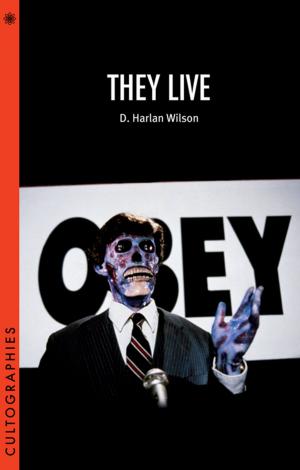The Statesman's Science
History, Nature, and Law in the Political Thought of Samuel Taylor Coleridge
Nonfiction, Religion & Spirituality, Philosophy, Political, History, European General| Author: | Pamela Edwards | ISBN: | 9780231506526 |
| Publisher: | Columbia University Press | Publication: | August 25, 2004 |
| Imprint: | Columbia University Press | Language: | English |
| Author: | Pamela Edwards |
| ISBN: | 9780231506526 |
| Publisher: | Columbia University Press |
| Publication: | August 25, 2004 |
| Imprint: | Columbia University Press |
| Language: | English |
Author of "Kubla Khan" and the epic "The Rime of the Ancient Mariner," Samuel Taylor Coleridge is remembered principally for his contributions as a romantic poet. This innovative reconsideration of Coleridge's thought and career not only demonstrates his importance as a philosopher but also recovers romanticism as both an aesthetic and a political movement. Pamela Edwards radically departs from classic theories of Coleridge's development and reads his writing within the framework of a constantly shifting political and social landscape.
Drawing on the ideology, rhetoric, and institutional theory at the turn of the late British Enlightenment, Edwards unearths the fundamental continuities in Coleridge's writing during the revolutionary period of 1794 to 1834, paying particular attention to the rhetoric of Coleridge's pamphlet and miscellaneous writings, the journalism of the Napoleonic years, his philosophical and ultimately political treatises within the contexts of his notebooks and letters, and his readings and intellectual friendships. What emerges is a clearer understanding of Coleridge's political philosophy and his contributions to the origins and ideology of British Liberalism.
Coleridge's interest in history, nature, and law as inherently interconnected projects producing an ideal or scientific reading of society reveals a developed progressive social and cultural state theory anchored in individual conscience, moral autonomy, and a civic and participatory human agency. If the Statesman could understand and finally master this scientific view of the world, he would be able not only to adjust political and social institutions to comprehend the historical contingencies of the moment but to see through the problem of the moment to the dynamic of change itself.
Author of "Kubla Khan" and the epic "The Rime of the Ancient Mariner," Samuel Taylor Coleridge is remembered principally for his contributions as a romantic poet. This innovative reconsideration of Coleridge's thought and career not only demonstrates his importance as a philosopher but also recovers romanticism as both an aesthetic and a political movement. Pamela Edwards radically departs from classic theories of Coleridge's development and reads his writing within the framework of a constantly shifting political and social landscape.
Drawing on the ideology, rhetoric, and institutional theory at the turn of the late British Enlightenment, Edwards unearths the fundamental continuities in Coleridge's writing during the revolutionary period of 1794 to 1834, paying particular attention to the rhetoric of Coleridge's pamphlet and miscellaneous writings, the journalism of the Napoleonic years, his philosophical and ultimately political treatises within the contexts of his notebooks and letters, and his readings and intellectual friendships. What emerges is a clearer understanding of Coleridge's political philosophy and his contributions to the origins and ideology of British Liberalism.
Coleridge's interest in history, nature, and law as inherently interconnected projects producing an ideal or scientific reading of society reveals a developed progressive social and cultural state theory anchored in individual conscience, moral autonomy, and a civic and participatory human agency. If the Statesman could understand and finally master this scientific view of the world, he would be able not only to adjust political and social institutions to comprehend the historical contingencies of the moment but to see through the problem of the moment to the dynamic of change itself.















